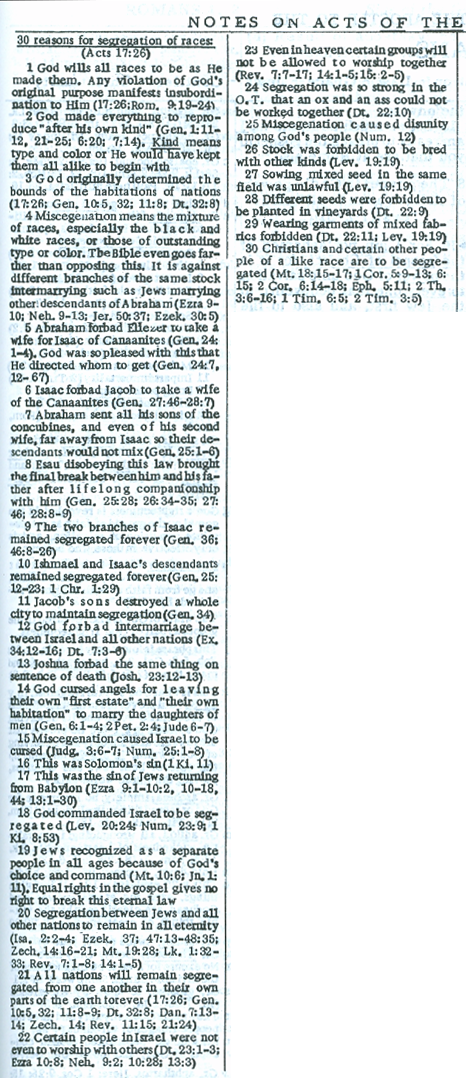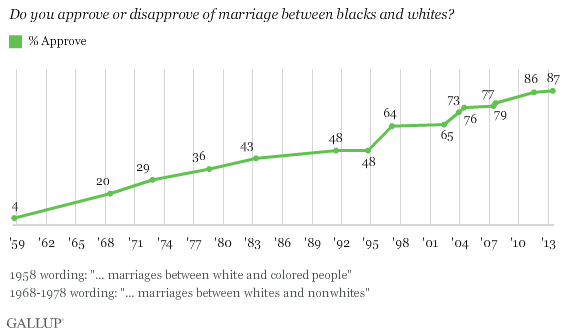The private interpretation of scripture in America led to all manner of heresies in the 19th century. Perhaps chief among them was the teaching of the natural inferiority of the African race. Books, pamphlets, tracts, and sermons were dedicated to explaining the inferior nature of the “negro,” which was a doctrine purposed and designed to “tickle the ears” of the slaveholder. The Christian abolitionists mobilized against this grave heresy and ultimately overcame it. But only after more than 600,000 Union and Confederate soldiers lay strewn across the prairies in the only national civil war fought to end slavery in history. As these deep racial tensions linger even into our own day, we must be ever vigilant to call out and confront the pernicious theological heresies that were concocted to support and perpetuate the myth of the inferiority of the African race, and thereby the entire institution of chattel slavery.
“Who is my neighbor?”
That is the question someone once asked our Lord Jesus Christ.
Our Lord’s answer was given, as it often was, in the form of a parable. Specifically, the parable of the Good Samaritan. (Luke 10:25-37)
Through this parable, Christ makes it known that “my neighbor” includes everyone. And more importantly, even my worst enemy (i.e. Samaritans and Jews despised each other).
Therefore, it is biblically and morally correct to say all men are my neighbor.
If the second greatest commandment to “love your neighbor as yourself” requires the Samaritan to love and show mercy to the Jew, does it not also apply to the white and the black in America?
Thanks to heretical doctrines sown in past generations by Protestant preachers, writers, and thinkers, millions of American Christians today still have a difficult time viewing the African-American as “neighbor.”
These heresies sprang forth too from the quill of Thomas Jefferson. So too, the Three-Fifths Clause forever enshrined the prevailing view of 18th century America regarding the negro slave into the U.S. Constitution.
From the founding, white Americans have viewed themselves as superior to “colored” people. Back when America’s God (“Nature’s God“) was doling out rights to “life, liberty, and the pursuit of happiness” to American Protestants willing to take up arms against their fellow British Christian brothers, it was “self-evident” to America’s founders that such rights did not apply to blacks, Native Americans, and women of all colors.
It was, however, “self-evident” to early American Protestants that the rights dispensed by America’s God at the nation’s founding were intended only for the white race and no one else.
That is a sad fact that modern Christians do well to humbly remember.
The first African slaves began arriving in America around 1620.
They remained enslaved while America “yearned for freedom from oppression.”
They remained enslaved after the Declaration of Independence was signed.
They remained enslaved after the American Revolutionary War was won.
They remained enslaved after the U.S. Constitution was signed.
It would ultimately take a brutal civil war to, only partially, defang the evils perpetrated by a great Protestant heresy regarding the black race. (In fact, America is the only nation that I could find, in my own research, that had to take up arms against each other in order to end slavery.)
While slavery in America was finally abolished on December 6, 1865, with the adoption of the 13th Amendment, it only came after Christian abolitions had risked life, limb, and property to end the heinous practice and after 600,000+ Americans died in armed conflict. This was one of the worst episodes of Christian-on-Christian bloodshed (aside from the Revolutionary War) in recent memory. And much of it was due to a grave theological heresy that wormed its way into America’s pulpits.
Of course, the abolition of slavery did relatively little to improve the physical safety and rights of blacks in America. An honest survey of racial segregation, discrimination, and violence during the notorious Jim Crow era makes this clear.
The passage of the Civil Rights Act of 1964 prohibited discrimination based on race, color, religion, sex, and national origin by federal and state governments.
Prior to 1964, and until the landmark Supreme Court case Loving v. Virginia, 388 U.S. 1 (1967), which invalidated laws prohibiting interracial marriage, most American Protestants, especially in the South, believed racial segregation was “biblical.”
Why did so many American Christians believe that segregation was biblical?
Because it was the toxic brew on tap from many Protestant pulpits, especially throughout the South.
Unsurprisingly, many of the same churches that had concocted a theological defense in support of chattel slavery in the 19th-century were also solidly opposed to racial desegregation in the 20th-century. Instead of taking the opportunity to repent of their heresy, many of these Protestant ministers dug in their heels and encouraged their flocks to oppose racial segregation.
When the federal government overturned the legal basis for racial segregation, these same preachers were caught in a catch-22. On one hand, they realized the times were changing and that desegregation was inevitable. But on the other hand, they had long codified and systematized the separation of races as a “biblical” command and therefore felt as if the federal government was persecuting them for their deeply-held beliefs and convictions.
While the majority of the most embarrassing writings, pamphlets, tracts, and sermons of pro-segregationist Protestant preachers have long been out of print and/or hidden away from public view, one example can be found in the Dake’s Annotated Reference Bible (1963), which was one of the first study bibles produced within the Pentecostal community.
In this clipping from the Dake’s 1963 Bible, you can read for yourself the antiquated “biblical” defense of racial segregation.

“30 Reasons for Segregation of Races” (Dake Annotated Reference Bible, 1963)
1. God wills all races to be as He made them. Any violation of God’s original purpose manifests insubordination to Him (Acts 17:26; Romans 9:19-24).
2. God made everything to reproduce “after his own kind” (Genesis 1:11-12, 21-25; 6:20; 7:14). Kind means type and color or He would have kept them all alike to begin with.
3. God originally determined the bounds of the habitations of nations (Acts 17:26; Genesis 10:5, 32; 11:8; Deuteronomy 32:8).
4. Miscegenation means the mixture of races, especially the black and white races, or those of outstanding type or color. The Bible even goes farther than opposing this. It is against different branches of the same stock intermarrying such as Jews marrying other descendants of Abraham (Ezra 9-10; Nehemiah 9-13; Jeremiah 50:37; Ezekiel 30:5).
5. Abraham forbad Eliezer to take a wife for Isaac of the Canaanites (Genesis 24:1-4). God was so pleased with this that He directed whom to get (Genesis 24:7, 12-27).
6. Isaac forbad Jacob to take a wife of the Canaanites (Genesis 27:46-28:7).
7. Abraham sent all his sons of the concubines, and even of his second wife, far away from Isaac so their descendants would not mix (Genesis 25:1-6).
8. Esau disobeying this law brought the final break between him and his father after lifelong companionship with him (Genesis 25:28; 26:34-35, 27:46; 28:8-9).
9. The two branches of Isaac remained segregated forever (Genesis 30; 46:8-26).
10. Ishmael and Isaac’s descendants remained segregated forever (Genesis 25:12-23; 1 Chronicles 1:29).
11. Jacob’s sons destroyed a whole city to maintain segregation (Genesis 34).
12. God forbad intermarriage between Israel and all other nations (Exodus 34:12-16; Deuteronomy 7:5-6).
13. Joshua forbad the same thing on sentence of death (Joshua 22:12-13).
14. God cursed angels for leaving their own “first estate” and “their own habitation” to marry the daughters of men (Genesis 6:1-4; 2 Peter 2:4; Jude 6-7).
15. Miscegenation caused Israel to be cursed (Judges 3:6-7; Numbers 25:1-8).
16. This was Solomon’s sin (I Kings 11).
17. This was the sin of Jews returning from Babylon (Ezra 9:1-10:2,10-18,44; 13:1-30).
18. God commanded Israel to be segregated (Leviticus 20:24; Numbers 23:9; 1 Kings 8:53).
19. Jews recognized as a separate people in all ages because of God’s choice and command (Matthew 10:6; John 1:11). Equal rights in the gospel gives no right to break this eternal law.
20. Segregation between Jews and all other nations to remain in all eternity (Isaiah 2:2-4; Ezekiel 37; 47:13-48,55; Zechariah 14:16-21; Matthew 19:28; Luke 1:32-33; Revelation 7:1-8; 14:1-5).
21. All nations will remain segregated from one another in their own parts of the earth forever (Acts 17:26; Genesis 10:5,32; 11:8-9; Deuteronomy 32:8; Daniel 7:13-14; Zechariah 14; Revelation 11:15; 21:24).
22. Certain people in Israel were not even to worship with others (Deuteronomy 23:1-5; Ezra 10:8; Nehemiah 9:2 10:28; 13:3).
23. Even in heaven certain groups will not be allowed to worship together (Revelation 7:7-17; 14:1-5; 15:2-5).
24. Segregation was so strong in the O.T. that an ox and an ass could not work together (Deuteronomy 22:10).
25. Miscegenation caused disunity among God’s people (Numbers 12).
26. Stock was forbidden to be bred with other kinds (Leviticus 19:19).
27. Sowing mixed seed in the same field was unlawful (Leviticus 19:19).
28. Different seeds were forbidden to be planted in vineyards (Deuteronomy 22:9).
29. Wearing garments of mixed fabrics forbidden (Deuteronomy 22:11; Leviticus 19:19).
30. Christians and certain other people of a like race are to be segregated (Matthew 18:15-17; 1 Corinthians 5:9-13; 6:15; 2 Corinthians 6:14-15; Ephesians 5:11; 2 Thessalonians 3:6-16; 1 Timothy 6:5; 2 Timothy 3:5).
Heretical doctrines once unleashed continue to permeate American culture.
The African-American’s struggle for equality in the land of the free has been a long and arduous journey. And it still appears far from complete.
It is heartbreaking that, in times past, far too many American clergy members used the Bible to promote a heretical doctrine that condoned blatant racism and discrimination against their own neighbor. But perhaps it is the failure of 21st-century clergy members to call out and confront this heresy today that is more devastating. Instead of challenging those who perpetuate these heretical teachings on race today (many across the South, but not exclusively), far too many Christian ministers remain silent on the topic as racial tensions rage across America.
BOTTOM LINE: We don’t need Protestant pulpits to simply tell us that racism is a sin. That is obvious to anyone who has read the words of Jesus. What we do need, however, is for America’s pulpits to lead the way in helping this nation heal its deep racial divide. They can accomplish this and help their own congregations avoid error by exposing America’s long-held heretical teachings about race. So too, America’s ministers can replace these heresies with sound teaching rooted in love, not hate, for one’s neighbor. But if we know anything about heresies, they will not just magically go away. We must be vigilant to guard the flock from the wolves. Ultimately, this heresy will only be defeated when Christian ministers are unified in confronting racial hatred with the preaching of love for God and for one’s neighbor. Nothing can overcome the love of God.




